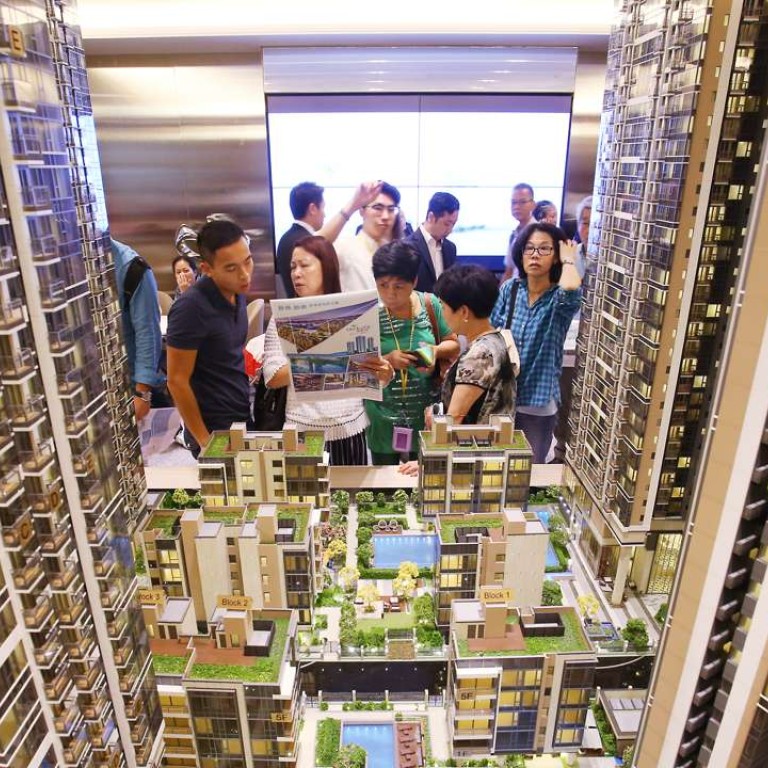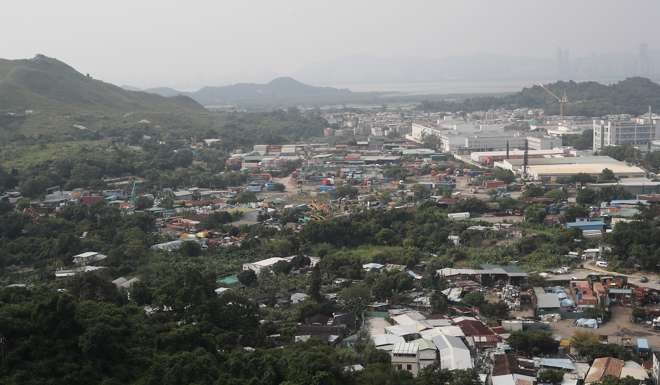
Look beyond brownfield sites to solve land shortage issues, think-tank led by Tung Chee-hwa urges
Our Hong Kong Foundation report suggests government take multi-pronged approach to finding space for development
Hong Kong could benefit from a capital gain of HK$3 trillion if the city’s government reforms the existing subsidised housing schemes, according to a new report released by a think-tank.
Our Hong Kong Foundation (OHKF), headed by former chief executive Tung Chee-hwa, said its proposal would also increase the city’s flat ownership from the current 50 per cent to 80 per cent by encouraging the resale of subsidised flats on the open market.
Under the proposal, which was floated last year, owners of subsidised flats can pay a potentially smaller land premium to the government in order to sell their flats and move up the housing ladder. Existing policy requires them to pay a market-based land premium but the foundation suggested fixing the premium level at the time of purchase instead.
Professor Richard Wong Yue-chim, an adviser to the think-tank, said many residents are unable to afford paying land premiums because of soaring property prices, and that the proposal would help close the wealth gap between the rich and poor.
“What is even worse is that 60 years after construction, many of these units will be so rundown that they will have to be redeveloped. By then, the unpaid land premium will most certainly reach an astronomical figure,” Wong said in the report.
“The only party that could redevelop these units would be the government. The injustice is that taxpayers would be forced to foot the bill yet again,” Wong added.
He estimated that privatising and deregulating the public housing supply would amount to a gain of HK$3.34 trillion, or equivalent to 150 per cent of the gross domestic product in 2013.
Wong’s estimation was calculated by deducting the total value of selling subsidised housing units at secondary market prices with the current resale restrictions (HK$1.08 trillion) from the value of what they would be at open market prices (HK$4.42 trillion).
Professor Chau Kwong-wing, an expert in housing policy at the University of Hong Kong, said the scheme would help improve social mobility, but questioned its sustainability as it would create more demand for public housing.
“The question is whether Hong Kong has sufficient developable land to make this policy sustainable,” Chau said. “Remember, public housing units that are sold cannot be recycled for the needy.”
Housing Authority member Stanley Wong Yuen-fai also said the major obstacle for home owners was not the issue of paying land premiums but that they would not be able to afford buying a flat in the private sector even after selling off their subsidised flat at a lower premium.
“It’s very much an academic calculation. Even if they realise these capital gains, they will still need to find a place to live and how can they afford to do so?”
He also highlighted that it was only fair for the government to use such a mechanism as it was an “equitable arrangement”.
“When property prices go up, it is fair and equitable for the Housing Authority to take a bite out of the [owed land premium]. But this calculation also applies to when property prices go down. The HA will then be sharing the loss.”
The foundation’s report also said the city’s land shortage problem should be tackled by establishing a sustainable land reserve.
“Over the past decade or so, because of the lack of land reserves, Hong Kong has paid the price for the inability to adjust land supply in response to market changes,” OHKF senior researcher William Tsang Wai-him said.
Researchers suggested that development density in new development areas such as Kai Tak could be further increased, and urged the government to speed up developing Lantau Island.


